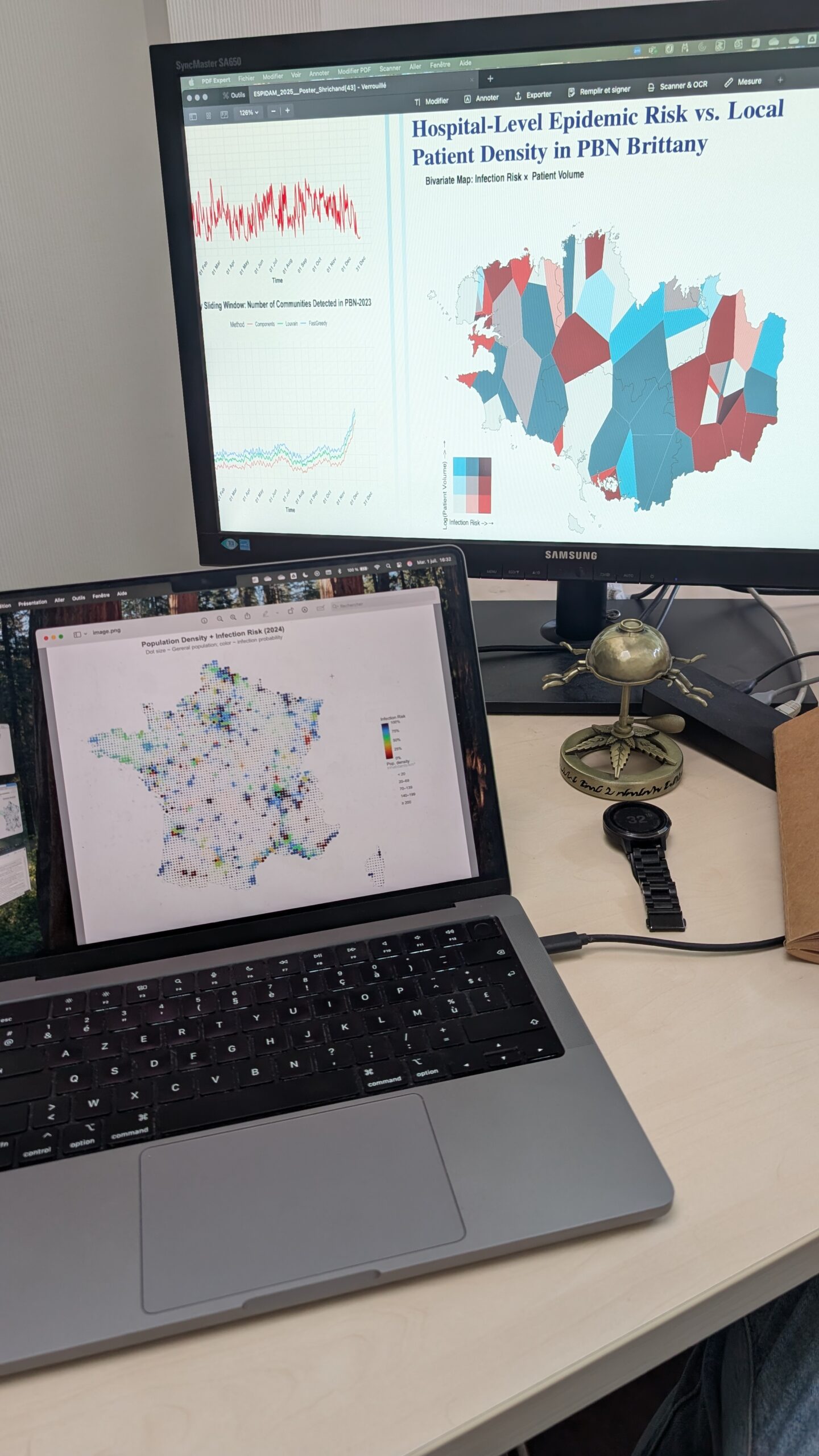PReViX Project: Strengthening France’s Hospital Preparedness for Future Epidemics
The COVID-19 pandemic highlighted the critical need for robust healthcare systems that can withstand sudden surges in patient numbers. In response, the PReViX (Pandemic Preparedness to Respiratory Virus X) project has been launched to develop innovative tools and strategies to bolster France’s readiness for future respiratory virus outbreaks. A key component of this initiative, Work Package 6 (WP6), is dedicated to decision-making and hospital preparedness, an area of expertise for our team at Arènes (EHESP, CNRS, Inserm, IEP Rennes, U. Rennes).
The overarching goal of the PReViX project is to develop an integrative modeling framework that provides public health authorities with early and reliable information from the first signs of a new respiratory virus threat. The project brings together a multidisciplinary consortium of leading French research institutions to tackle this challenge from various angles, including virology, genomics, epidemiology, and social sciences. PReViX is structured into six interconnected work packages, each addressing a critical aspect of pandemic preparedness, from early risk assessment to understanding non-pharmaceutical interventions.
Focus on WP6: Enhancing Hospital Resilience
Led by our team in Rennes, in collaboration with the IPLESP unit in Paris, WP6 will specifically investigate the French hospital system’s ability to adapt to the massive influx of patients during a health crisis. The COVID-19 pandemic revealed that hospitals could dramatically increase their capacity, for instance, by converting other units into Intensive Care Units (ICUs) and postponing non-essential procedures. However, this “elasticity” is not limitless and depends on a complex interplay of factors.
WP6 aims to dissect and model this flexibility to anticipate breaking points in the healthcare system better. The research will unfold in three main stages:
- Analyzing Past Crises: The team will conduct a retrospective analysis of the French hospital discharge database over the last decade. This will allow us to document how hospital capacity has effectively surged during past epidemics (including COVID-19 and seasonal influenza), which non-urgent activities were reduced, and how patient care was reorganized.
- Understanding Healthcare Consumption: We hypothesize that a hospital’s ability to cope with a crisis is also influenced by the surrounding healthcare landscape, including the availability of primary and post-acute care. By analyzing France’s comprehensive healthcare data system, we will identify how healthcare consumption patterns in a hospital’s catchment area change during a crisis.
- Developing a Dynamic Model: The insights from the first two stages will be used to build a dynamic model of the healthcare system. This model will simulate various epidemic scenarios, incorporating data on virus characteristics and potential public health interventions from other PReViX work packages. The ultimate goal is to identify the key determinants of hospital resilience and predict potential “breaking points” in the system.
By providing a clearer understanding of the limits and levers of our hospital system, WP6 of the PReViX project will equip policymakers and hospital administrators with invaluable tools for making informed decisions during the critical early stages of an epidemic. This research will directly contribute to strengthening France’s preparedness and ensuring our healthcare system can weather future public health storms.
The PReViX project is funded by ANRS-MIE for 2025-2028.
More information about the consortium below:


